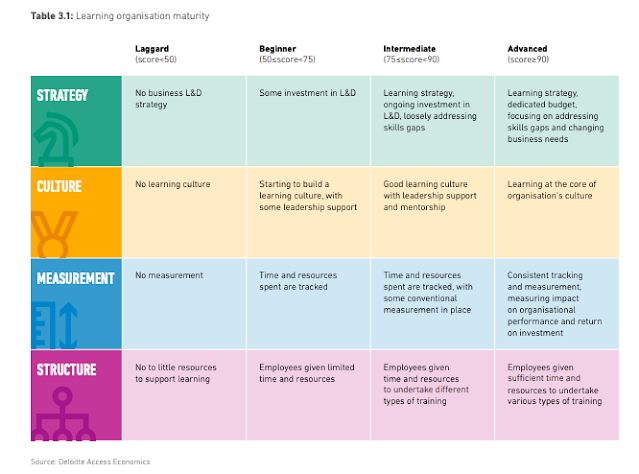The above graphic is from the DeakinCo report into ROI on Learning & Development. You can download the report here.
This from the report:
"Based on bespoke economic modelling, this report finds that on average a 1% increase in L&D expenditure per employee is associated with an 0.2% increase in business revenue in the same year. In dollar terms, this is equivalent to every $1 invested in L&D per employee being associated with an additional $4.70 in business revenue (per employee)."
In 2005 I began applying research completed in 2004 by Dr. Brent Peterson from Columbia University.
He found that 50% of learning happens after an event and 26% prior to an event.
The consequences of applying this research have been profound for my clients. I can confidently guarantee to you that working together will mean a minimum of 10 times return on your investment when you undertake pre and post work.
In my signature We Need To Talk Experience between episodes and after episode four there is a telephone and Zoom help line available meaning you can schedule a call for help with implementation of your insights, inspirations and ideas or with integrating your new learnings with what is already working well for you. This is key post work.
Download the We Need To Talk infographic here. It shows the full pre and post work and how they bookend the experience and guarantee your ROI.
Want the greatest possible ROI on your L & D.? Please consider The We Need To Talk Experience. At this link is everything you need to know about season two.
Become the wise leader you want to be.
Ian
PS Two old axioms apply here. "True leaders create leaders. Fake leaders create followers." Anon
Your heartful disposition and a mindset about creating more leaders is the intention piece of ROI on L & D.
"Success depends on where intention is." Gita Bellin
PSS Below contains key insights into essentials for great learning and development from the DeakinCo research. How do you rate yourself against these criteria?




No comments:
Post a Comment